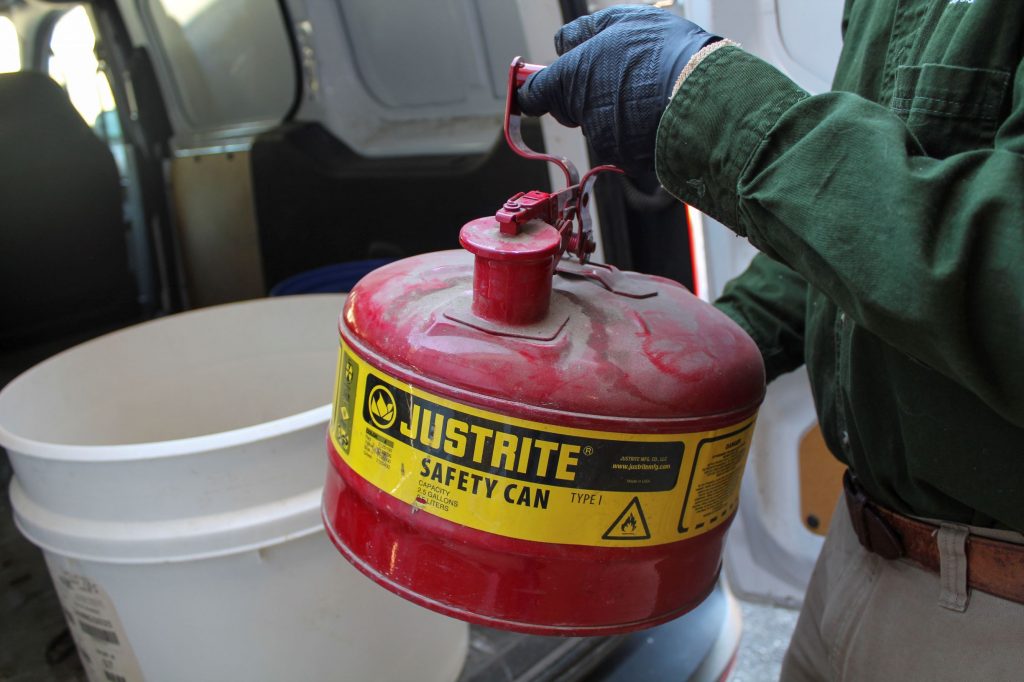Whether it’s a can for the mower or a backup container for your car, at some point or another, we’ve all had one of those iconic red containers with some spare gas. However, that useful substance is also a hazardous product, and without properly storing gasoline at home – as well as handling and disposal – you’ll encounter risks to your home, health, and the environment. Learn what you need to know to deal with this hazardous household product.
Handling and Storing Gasoline at Home
It’s important always to remember that as a fuel, gasoline is inherently dangerous to you and your family.
- Gasoline is highly flammable and can be explosive. Store gasoline in approved, air-tight containers well away from children and pets, open flames, and sources of ignition.
- Gas contains volatile organic compounds (VOCs), especially from chemicals like benzene, a known carcinogen. Open in well-ventilated spaces.
- Do not store in your car’s trunk. These containers could break or be under threat of explosion from heat or impact during an accident.
How Gasoline Goes Bad
Like with many household products, gasoline can go bad. This can happen in two ways. First, gasoline can become contaminated, such as moved to an unclean container or left open near other products. Second is that gasoline has a shelf life, about six months for pure gas and three months for ethanol-blended gas (most US gas stations use “E10” gas that contains about 10% ethanol). In either situation, this gas should not be used and must be properly disposed of.
Disposing of Gasoline
Gasoline cannot be disposed of at home and shouldn’t be poured down the drain or thrown into the trash. This includes containers that have contained gasoline. You should also not mix gas with other automotive or chemical waste. Instead, gasoline is a Household Hazardous Product and needs to be disposed of at a community disposal event or a household hazardous waste collection center.
The NEDT Household Hazardous Products Collection Centers are just such a place. We’ve got multiple locations to help New Englanders dispose of gasoline and many other common hazardous products. Learn more about what we accept and educate yourself more on gasoline and other household hazardous products with our Fact Sheets. We also provide pick up services, including contactless services: contact us to learn more.



Leave a Reply